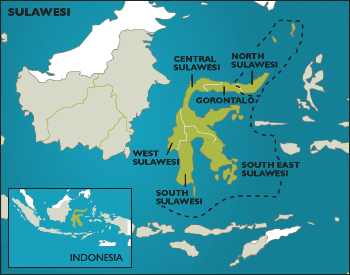Down to Earth No. 48 February 2001
US-based mining giant Newmont has launched an aggressive attack on environmental group WALHI, over accusations of damage to human health at the company's gold mine at Ratatotok, North Sulawesi.
In January WALHI announced the results of blood tests on 20 people living at Buyat Bay, near PT Newmont Minahasa Raya's mine. The people had all complained of deteriorating health during the past three years. Blood samples, taken by WALHI North Sulawesi and JATAM and analysed in a US laboratory, showed high levels of arsenic and mercury.

